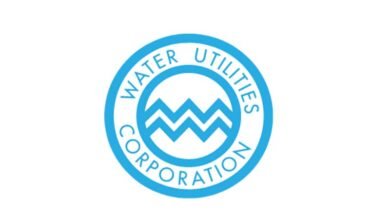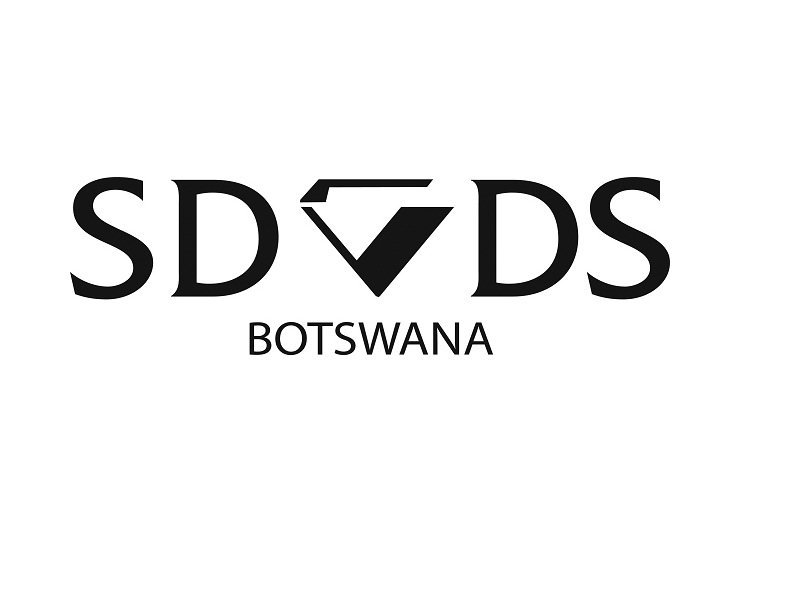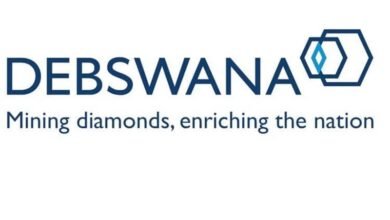Project Manager Career Progression: Entry Level to Executive 2025
The project management landscape has evolved dramatically over the past few years, with remote work, AI integration, and agile methodologies reshaping how we approach project delivery. As someone who’s navigated this career path for over a decade—from coordinating small internal projects to leading multi-million dollar digital transformations—I can tell you that the opportunities for project managers have never been more abundant or diverse.
Whether you’re just starting your career or looking to make that crucial leap to executive leadership, this comprehensive guide will walk you through every stage of project manager career progression in 2025. We’ll explore the skills you need, the salaries you can expect, and the strategic moves that will set you apart in an increasingly competitive market.
[ez-toc]
Understanding the Project Management Career Landscape
The project management profession has experienced unprecedented growth, with the Project Management Institute (PMI) reporting over 25 million project management professionals worldwide. In the United States alone, the demand for project managers is expected to grow by 33% through 2027, making it one of the fastest-growing career fields.
Current Market Trends in Project Management
Remote and Hybrid Work Models: The shift to remote work has fundamentally changed how project managers operate. Today’s successful PMs must excel at virtual team leadership, digital collaboration tools, and asynchronous communication.
AI and Automation Integration: Modern project managers are increasingly working alongside AI tools for scheduling, risk assessment, and resource allocation. Understanding how to leverage these technologies is becoming essential for career advancement.
Agile and Hybrid Methodologies: Traditional waterfall approaches are giving way to agile, scrum, and hybrid methodologies. Project managers who can adapt to these flexible frameworks are in high demand.
Data-Driven Decision Making: The ability to analyze project metrics, create meaningful dashboards, and derive actionable insights from data has become crucial for project management success.
Entry Level Project Manager Positions
Project Coordinator
Typical Responsibilities:
- Assist senior project managers with project planning and execution
- Maintain project documentation and schedules
- Coordinate meetings and communications
- Track project progress and deliverables
- Support resource allocation and budget tracking
Required Skills:
- Strong organizational and communication skills
- Proficiency in Microsoft Office Suite (especially Excel and PowerPoint)
- Basic understanding of project management principles
- Attention to detail and ability to multitask
Salary Range: $45,000 – $65,000 annually
Assistant Project Manager
Typical Responsibilities:
- Support project planning and resource allocation
- Monitor project timelines and budgets
- Facilitate team meetings and status updates
- Assist with risk identification and mitigation
- Prepare project reports and presentations
Required Skills:
- 1-2 years of relevant experience
- Familiarity with project management software (Asana, Trello, Monday.com)
- Basic understanding of project methodologies
- Strong interpersonal skills
Salary Range: $50,000 – $70,000 annually
Junior Project Manager
Typical Responsibilities:
- Lead small to medium-sized projects independently
- Develop project plans and timelines
- Manage project budgets up to $100,000
- Coordinate cross-functional teams
- Report to senior project managers or directors
Required Skills:
- 2-3 years of project management experience
- PMP or CAPM certification preferred
- Proficiency in project management tools (Microsoft Project, Smartsheet)
- Understanding of agile and waterfall methodologies
Salary Range: $60,000 – $80,000 annually
Find entry-level project manager positions on Jobs4BW.com
Mid-Level Project Manager Roles
Project Manager
This is often considered the “sweet spot” of project management careers—where you have significant autonomy while still being deeply involved in hands-on project work.
Typical Responsibilities:
- Manage multiple projects simultaneously
- Lead project teams of 5-15 members
- Develop comprehensive project plans and budgets
- Stakeholder management and communication
- Risk assessment and mitigation planning
- Ensure project delivery within scope, time, and budget constraints
Required Skills:
- 3-5 years of project management experience
- PMP certification strongly preferred
- Advanced knowledge of project management methodologies
- Leadership and team management skills
- Financial acumen and budget management
Salary Range: $75,000 – $110,000 annually
Senior Project Manager
Typical Responsibilities:
- Oversee complex, high-value projects ($500K+)
- Mentor junior project managers
- Develop project management processes and standards
- Interface with executive leadership
- Manage vendor relationships and contracts
Required Skills:
- 5-7 years of project management experience
- PMP certification required
- Proven track record of successful project delivery
- Strong leadership and mentoring abilities
- Strategic thinking and problem-solving skills
Salary Range: $90,000 – $135,000 annually
Technical Project Manager
Specialized role focusing on technology-driven projects, particularly popular in software development, IT infrastructure, and digital transformation initiatives.
Typical Responsibilities:
- Manage software development projects
- Coordinate with engineering and technical teams
- Understand technical requirements and constraints
- Facilitate agile/scrum ceremonies
- Bridge communication between technical and business teams
Required Skills:
- Technical background or strong technical aptitude
- Experience with software development lifecycle
- Agile/Scrum certification (CSM, SAFe)
- Understanding of development tools and processes
Salary Range: $95,000 – $140,000 annually
Explore mid-level project manager opportunities on Jobs4BW.com
Senior Project Manager Positions
Program Manager
Program managers oversee multiple related projects that collectively deliver business value. This role requires strategic thinking and the ability to see the bigger picture.
Typical Responsibilities:
- Manage portfolios of related projects
- Align project outcomes with business objectives
- Coordinate between multiple project teams
- Strategic planning and roadmap development
- Stakeholder management at executive level
Required Skills:
- 7-10 years of project management experience
- PgMP or equivalent certification
- Strong business acumen and strategic thinking
- Executive communication skills
- Change management expertise
Salary Range: $120,000 – $160,000 annually
Project Management Office (PMO) Manager
Typical Responsibilities:
- Establish project management standards and processes
- Provide project management training and mentorship
- Monitor project performance across the organization
- Implement project management tools and systems
- Report on project portfolio performance to executives
Required Skills:
- Extensive project management experience (8+ years)
- Deep knowledge of PM methodologies and tools
- Training and development capabilities
- Analytical and reporting skills
- Change management expertise
Salary Range: $110,000 – $150,000 annually
Executive Level Project Management
Director of Project Management
Typical Responsibilities:
- Set strategic direction for project management function
- Manage large project management teams (20+ people)
- Oversee major organizational initiatives
- Collaborate with C-suite executives
- Drive organizational change and transformation
Required Skills:
- 10+ years of progressive project management experience
- Advanced degree preferred (MBA, Master’s in Project Management)
- Proven leadership of large teams
- Strategic planning and execution capabilities
- Strong financial and business acumen
Salary Range: $140,000 – $200,000 annually
Vice President of Project Management
Typical Responsibilities:
- Executive-level strategic planning and decision making
- P&L responsibility for project management function
- Board-level reporting and presentations
- Organizational transformation leadership
- Merger and acquisition project oversight
Required Skills:
- 12+ years of senior project management experience
- Executive MBA or equivalent
- Proven track record of business transformation
- Board-level communication skills
- P&L management experience
Salary Range: $180,000 – $300,000+ annually
Chief Project Officer (CPO)
The emerging C-suite role focused on project and program management at the highest organizational level.
Typical Responsibilities:
- C-suite level strategic planning
- Enterprise-wide project portfolio management
- Board of directors reporting
- Organizational capability building
- Industry thought leadership
Required Skills:
- 15+ years of executive project management experience
- Advanced degree required
- Proven track record of enterprise transformation
- Thought leadership and industry recognition
- Global experience preferred
Salary Range: $250,000 – $500,000+ annually
Search executive project management positions on Jobs4BW.com
Essential Skills for Career Advancement
Technical Skills Comparison by Level
| Skill Category | Entry Level | Mid-Level | Senior Level | Executive Level |
|---|---|---|---|---|
| Project Management Tools | Basic (Trello, Asana) | Intermediate (MS Project, Smartsheet) | Advanced (Enterprise PM tools) | Strategic (Portfolio management platforms) |
| Methodologies | Waterfall basics | Agile/Scrum proficiency | Hybrid approach mastery | Methodology selection and customization |
| Data Analysis | Basic reporting | Intermediate analytics | Advanced metrics and KPIs | Strategic business intelligence |
| Technology | Office Suite | Collaboration platforms | AI/automation tools | Emerging technology assessment |
Soft Skills Development
Communication Skills: As you progress in your career, your communication shifts from task-oriented to strategic. Entry-level PMs focus on status updates, while executives craft compelling narratives for board presentations.
Leadership Development: The evolution from managing tasks to leading people to inspiring organizations requires continuous investment in leadership development.
Emotional Intelligence: Higher-level roles require greater emotional intelligence to navigate complex stakeholder relationships and organizational politics.
Strategic Thinking: The ability to see beyond individual projects to organizational impact becomes crucial for senior roles.
Salary Progression and Compensation
Comprehensive Salary Comparison Table
| Position | Entry Level | Mid-Level | Senior Level | Executive Level |
|---|---|---|---|---|
| Base Salary | $45K – $80K | $75K – $140K | $120K – $200K | $180K – $500K+ |
| Bonus Potential | 5-10% | 10-20% | 15-30% | 25-50% |
| Equity/Stock Options | Rare | Limited | Common | Significant |
| Total Compensation | $50K – $85K | $85K – $170K | $140K – $260K | $225K – $750K+ |
Geographic Salary Variations
Top Paying Cities for Project Managers (2025):
- San Francisco, CA: 25-30% above national average
- New York, NY: 20-25% above national average
- Seattle, WA: 15-20% above national average
- Boston, MA: 15-20% above national average
- Washington, DC: 10-15% above national average
Remote Work Impact: Remote positions often offer 10-15% salary premium to attract top talent, though this varies by company size and industry.
Step-by-Step Career Advancement Guide
Phase 1: Building Your Foundation (Years 1-3)
Step 1: Gain Relevant Experience
- Seek project coordinator or assistant roles
- Volunteer for project work in your current role
- Consider internships or entry-level positions at consulting firms
Step 2: Develop Core Competencies
- Master project management fundamentals
- Learn popular PM software tools
- Understand basic methodologies (waterfall, agile)
Step 3: Pursue Initial Certifications
- CAPM (Certified Associate in Project Management)
- Google Project Management Certificate
- Agile/Scrum Foundation certification
Step 4: Build Your Network
- Join local PMI chapters
- Attend project management conferences
- Connect with experienced PMs on LinkedIn
Phase 2: Establishing Expertise (Years 4-7)
Step 5: Earn Advanced Certifications
- PMP (Project Management Professional)
- Certified ScrumMaster (CSM)
- Industry-specific certifications
Step 6: Develop Specialization
- Choose an industry focus (IT, construction, healthcare, etc.)
- Develop expertise in specific methodologies
- Build domain knowledge in your chosen field
Step 7: Take on Leadership Roles
- Lead larger, more complex projects
- Mentor junior team members
- Contribute to process improvement initiatives
Step 8: Expand Your Skill Set
- Develop business acumen
- Learn financial management
- Improve presentation and communication skills
Phase 3: Senior Leadership (Years 8-12)
Step 9: Pursue Advanced Education
- Consider MBA or Master’s in Project Management
- Attend executive education programs
- Develop strategic thinking capabilities
Step 10: Build Executive Presence
- Speak at industry conferences
- Publish thought leadership content
- Develop board-level communication skills
Step 11: Expand Your Influence
- Lead organizational change initiatives
- Mentor and develop other project managers
- Contribute to industry standards and practices
Phase 4: Executive Leadership (Years 12+)
Step 12: Develop Business Leadership Skills
- P&L management experience
- Strategic planning and execution
- Merger and acquisition experience
Step 13: Build Industry Recognition
- Thought leadership and speaking engagements
- Board positions and advisory roles
- Industry awards and recognition
Industry-Specific Career Paths
Technology Sector Career Progression
Entry Point: Technical Project Coordinator Mid-Level: Scrum Master/Product Owner Senior Level: Program Manager, Technical Director Executive Level: VP of Engineering, Chief Technology Officer
Key Differentiators:
- Strong technical background
- Agile/DevOps expertise
- Product management skills
- Understanding of software development lifecycle
Construction and Engineering
Entry Point: Assistant Project Manager Mid-Level: Project Manager, Construction Manager Senior Level: Program Manager, Regional Manager Executive Level: VP of Operations, Chief Operating Officer
Key Differentiators:
- Engineering or construction background
- Safety and regulatory compliance knowledge
- Contract and vendor management
- Understanding of construction processes and timelines
Healthcare and Pharmaceuticals
Entry Point: Clinical Research Coordinator Mid-Level: Clinical Project Manager Senior Level: Program Manager, Clinical Operations Manager Executive Level: VP of Clinical Operations, Chief Medical Officer
Key Differentiators:
- Understanding of regulatory requirements (FDA, GCP)
- Clinical research experience
- Healthcare industry knowledge
- Compliance and quality assurance expertise
Financial Services
Entry Point: Business Analyst, Project Coordinator Mid-Level: Project Manager, Business Relationship Manager Senior Level: Program Manager, VP of Operations Executive Level: Chief Operating Officer, Chief Risk Officer
Key Differentiators:
- Financial services knowledge
- Regulatory compliance expertise
- Risk management skills
- Understanding of financial markets and products
Common Career Transition Challenges
Challenge 1: Making the Jump from Coordinator to Manager
The Problem: Many professionals get stuck in coordinator roles without clear progression paths.
The Solution:
- Actively seek stretch assignments
- Demonstrate leadership in current role
- Pursue relevant certifications
- Find mentors who can advocate for your advancement
Personal Experience: I spent two years as a project coordinator before realizing I needed to be more proactive about my career development. I started volunteering for high-visibility projects and eventually convinced my manager to let me lead a small initiative. That success opened doors to my first project manager role.
Challenge 2: Transitioning from Technical to Management Roles
The Problem: Technical professionals often struggle with the people management aspects of project management.
The Solution:
- Develop emotional intelligence and communication skills
- Practice delegation and team leadership
- Seek formal management training
- Find opportunities to lead technical teams
Challenge 3: Breaking into Executive Roles
The Problem: The jump from senior manager to executive requires different skills and often seems insurmountable.
The Solution:
- Develop strategic thinking and business acumen
- Build relationships with senior leadership
- Seek executive coaching or mentorship
- Pursue advanced education (MBA, executive programs)
- Demonstrate measurable business impact
Challenge 4: Industry Switching
The Problem: Moving between industries can be difficult due to domain knowledge requirements.
The Solution:
- Identify transferable skills and highlight them
- Develop industry knowledge through research and networking
- Consider lateral moves or consulting to gain experience
- Leverage your project management expertise while learning the new domain
Certification and Education Pathways
Essential Certifications by Career Stage
Entry Level (0-3 years):
- CAPM (Certified Associate in Project Management)
- Google Project Management Professional Certificate
- CompTIA Project+ (for IT-focused roles)
Mid-Level (3-7 years):
- PMP (Project Management Professional)
- Certified ScrumMaster (CSM)
- PMI-ACP (Agile Certified Practitioner)
Senior Level (7-12 years):
- PgMP (Program Management Professional)
- PfMP (Portfolio Management Professional)
- MSP (Managing Successful Programmes)
Executive Level (12+ years):
- Executive MBA
- Advanced leadership certifications
- Board governance certifications
Continuing Education and Professional Development
Industry Conferences to Attend:
- PMI Global Conference
- Agile Alliance Conference
- Industry-specific events (e.g., HIMSS for healthcare, RSA for security)
Online Learning Platforms:
- Coursera (University partnerships)
- LinkedIn Learning
- Udemy (practical skills)
- PMI’s own learning platform
Professional Organizations:
- Project Management Institute (PMI)
- Scrum Alliance
- International Association of Project and Program Management (IAPPM)
Technology and Tools Mastery
Evolution of PM Tools by Career Level
Entry Level Tools:
- Microsoft Office Suite (Excel, PowerPoint, Word)
- Basic project management tools (Trello, Asana, Monday.com)
- Communication platforms (Slack, Microsoft Teams)
Mid-Level Tools:
- Microsoft Project or equivalent
- Advanced collaboration tools (Confluence, SharePoint)
- Time tracking and resource management tools
- Basic analytics and reporting tools
Senior Level Tools:
- Enterprise project management suites (Oracle Primavera, Clarity)
- Portfolio management platforms
- Advanced analytics and business intelligence tools
- Integration and automation platforms (Zapier, Power Automate)
Executive Level Tools:
- Strategic planning software
- Executive dashboards and reporting
- Financial planning and analysis tools
- Emerging technologies (AI, machine learning platforms)
Emerging Technologies in Project Management
Artificial Intelligence Applications:
- Predictive analytics for project outcomes
- Automated scheduling and resource allocation
- Risk assessment and mitigation recommendations
- Natural language processing for project reporting
Blockchain and Distributed Ledger:
- Smart contracts for project agreements
- Transparent project tracking and accountability
- Decentralized project governance
Virtual and Augmented Reality:
- Immersive project visualization
- Remote collaboration enhancement
- Training and simulation environments
Building Your Personal Brand
Creating Your Professional Narrative
Step 1: Define Your Unique Value Proposition What sets you apart from other project managers? Perhaps you excel at turning around troubled projects, or you have a unique combination of technical and business skills.
Step 2: Document Your Achievements Quantify your impact with specific metrics:
- “Delivered 15 projects totaling $2.3M in value”
- “Improved project delivery time by 30% through process optimization”
- “Led digital transformation initiative affecting 500+ employees”
Step 3: Develop Thought Leadership
- Write articles about project management trends
- Speak at industry conferences
- Contribute to professional publications
- Share insights on LinkedIn and industry forums
Networking Strategies for Career Advancement
Internal Networking:
- Build relationships across departments
- Volunteer for cross-functional initiatives
- Seek mentorship from senior leaders
- Participate in company leadership programs
External Networking:
- Join professional associations
- Attend industry conferences and meetups
- Participate in online communities
- Engage with recruiters and industry leaders
Digital Networking:
- Optimize your LinkedIn profile
- Share relevant content regularly
- Engage with others’ posts and articles
- Join relevant professional groups
Frequently Asked Questions
Q: How long does it typically take to become a senior project manager?
A: The typical progression to senior project manager takes 7-10 years, though this can vary based on industry, company size, and individual performance. High performers in fast-growing companies might reach senior levels in 5-7 years, while those in more traditional industries might take longer.
Q: Is an MBA required for executive-level PM roles?
A: While not always required, an MBA or equivalent advanced degree is increasingly common for executive roles. About 70% of project management executives have advanced degrees. However, exceptional experience and results can sometimes substitute for formal education.
Q: What’s the difference between a project manager and a program manager?
A: Project managers focus on individual projects with specific deliverables, timelines, and budgets. Program managers oversee multiple related projects that collectively deliver business value. Program management requires more strategic thinking and stakeholder management skills.
Q: How important are certifications for career advancement?
A: Certifications are highly valuable, especially for mid-level roles. PMP certification is often required for project manager positions, and specialized certifications (like Agile/Scrum) can differentiate you in competitive markets. However, experience and results ultimately matter more than certifications alone.
Q: Can I transition into project management from another field?
A: Absolutely! Many successful project managers come from other fields. Key transferable skills include leadership, organization, communication, and problem-solving. Consider starting with project coordinator roles or pursuing project management certification to demonstrate commitment.
Q: What industries offer the best opportunities for project managers?
A: Technology, healthcare, financial services, and consulting typically offer the highest salaries and most opportunities. However, every industry needs project managers, so consider your interests and existing expertise when choosing a focus area.
Q: How do I negotiate salary as a project manager?
A: Research market rates for your level and location, document your achievements and impact, and be prepared to discuss specific examples of value you’ve delivered. Consider total compensation including benefits, bonus potential, and professional development opportunities.
Q: What’s the most important skill for project management success?
A: Communication is consistently rated as the most important skill. Project managers spend 75-90% of their time communicating with stakeholders, team members, and leadership. Strong communication skills enable everything else—from requirement gathering to change management.
Q: How do I handle career plateaus in project management?
A: Career plateaus are common, especially at mid-level roles. Consider these strategies:
- Pursue additional certifications or education
- Seek stretch assignments or new challenges
- Consider changing industries or companies
- Develop new skills (e.g., data analysis, change management)
- Find mentors who can provide guidance and opportunities
Q: What’s the future outlook for project management careers?
A: The outlook is excellent. Digital transformation, aging infrastructure, and increasing project complexity are driving demand for skilled project managers. The profession is evolving toward more strategic, technology-enabled roles with greater emphasis on business outcomes and stakeholder value.
Conclusion
The project management career path offers tremendous opportunities for growth, both professionally and financially. From entry-level coordinator positions to C-suite executive roles, the progression requires continuous learning, skill development, and strategic career planning.
Success in project management isn’t just about managing tasks and timelines—it’s about delivering value, leading teams, and driving organizational change. As you progress through your career, focus on developing both technical project management skills and the soft skills that enable leadership and strategic thinking.
Remember that career progression isn’t always linear. Economic conditions, industry changes, and personal circumstances can all influence your path. Stay flexible, continue learning, and focus on building a diverse skill set that will serve you well regardless of how the profession evolves.
The investment in your project management career can be substantial—both in terms of time and money spent on education and certifications. However, the financial returns and career satisfaction can be equally substantial. Project managers consistently report high job satisfaction, competitive compensation, and excellent work-life balance compared to many other professions.
Whether you’re just starting your project management journey or looking to make that next leap in your career, the key is to be intentional about your development, seek out mentorship and learning opportunities, and focus on delivering measurable value in everything you do.
Ready to take the next step in your project management career? Explore current project management opportunities on Jobs4BW.com and find the perfect role to advance your career.
About the Author: This comprehensive guide draws from over a decade of project management experience across technology, consulting, and financial services industries, combined with insights from hundreds of project management professionals at various career stages.
Disclaimer: Salary ranges and job market information are based on 2025 data and may vary by location, industry, and individual circumstances. Always research current market conditions in your specific area and industry.




